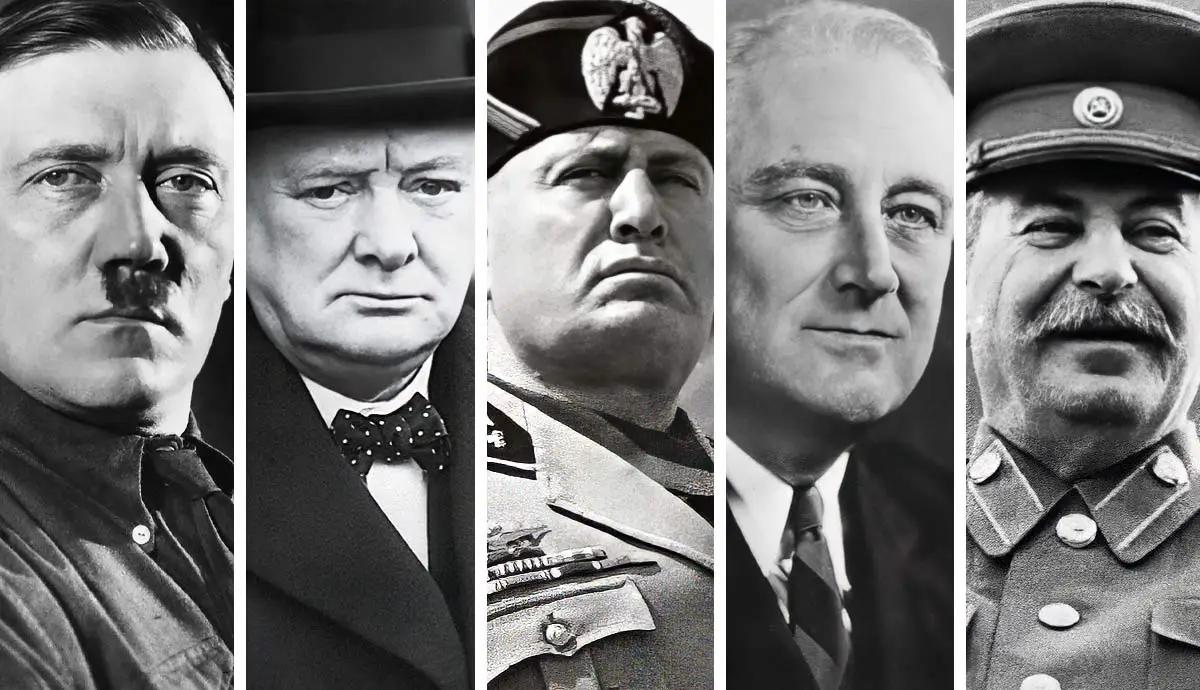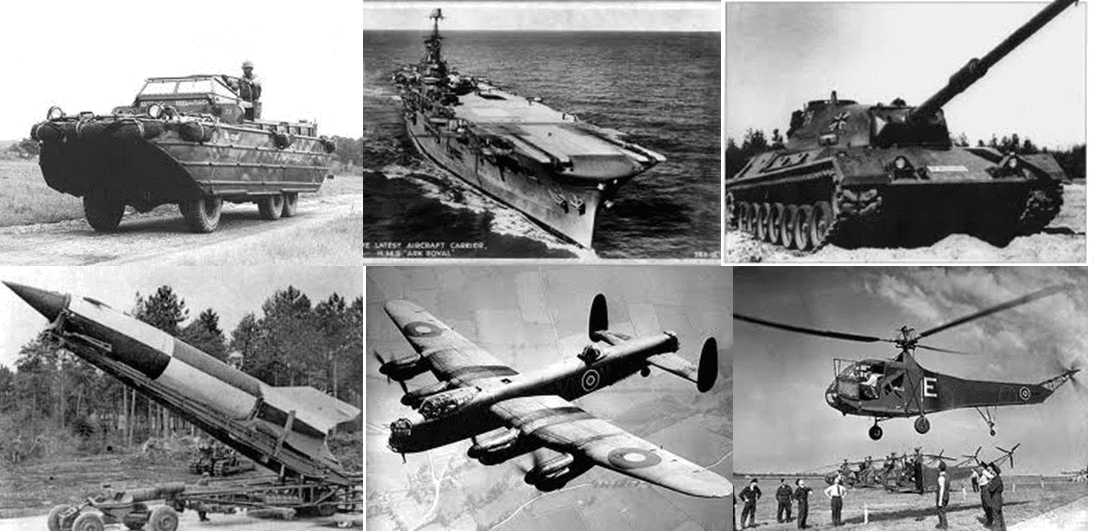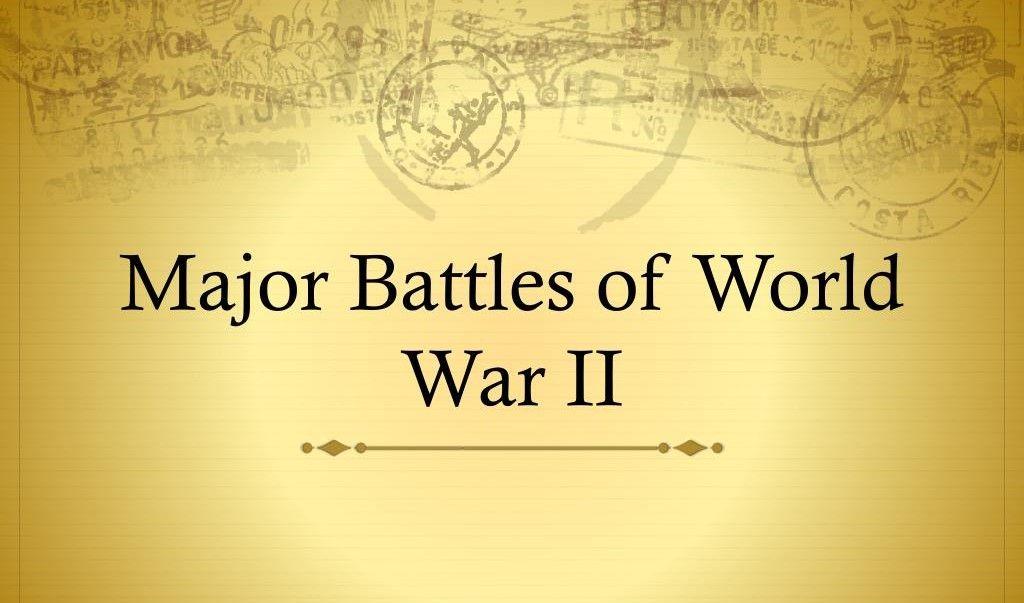The Second World War, a global conflict from 1939 to 1945, was a culmination of geopolitical and economic tensions that had been simmering since the end of World War I. This catastrophic event, which reshaped the global order, was precipitated by a complex interplay of factors including the Treaty of Versailles, economic depression, ideological conflicts, and aggressive nationalism. This article delves into the intricate web of circumstances that led to the outbreak of World War II, examining key events and decisions that set the stage for this devastating conflict.
WWII Origins: Key Causes & Global Impact
History • 23 Jan, 2024 • 37,611 Views • ⭐ 5.0
Written by Anand Swami

The Treaty of Versailles: Seeds of Discontent

The Treaty of Versailles, integral to the interwar period, significantly contributed to World War II. Signed on June 28, 1919, it imposed onerous conditions on Germany, including the loss of territories such as Alsace-Lorraine to France and parts of Prussia to the newly reborn Poland. The 'War Guilt Clause' saddled Germany with the entire blame for the war, leading to reparations that crippled its economy.
This treaty, perceived as a ‘Diktat’ in Germany, created a sense of humiliation and injustice, fuelling nationalist sentiments. It's crucial to note that this treaty not only alienated Germany but also failed to create a stable and sustainable European order, laying a fragile foundation for peace.
HISTORY QUIZ • 10 QUESTIONS • 2 MINS
We've got a History quiz for you!
TAP TO PLAY

The Rise of Fascism in Europe

Fascism's rise in the 1920s and 1930s was marked by dictatorial power, suppression of democracy, and aggressive nationalism. In Italy, Benito Mussolini established a totalitarian regime following his March on Rome in 1922, advocating a strong, militarized state. In Germany, Adolf Hitler, who became Chancellor in 1933, established a fascist dictatorship under the guise of the Third Reich.
He promoted Aryan supremacy, anti-Semitism, and the need for Lebensraum (living space) for the German people. These fascist regimes not only suppressed political opposition but also pursued aggressive foreign policies, directly undermining the post-World War I international order.
The Great Depression: A Catalyst for War

The Great Depression, which began with the U.S. stock market crash in October 1929, had global repercussions, particularly in Germany where it led to a catastrophic economic situation. Unemployment soared, and the Weimar Republic, already weakened by internal conflicts and hyperinflation in the early 1920s, struggled to respond effectively.
This economic chaos provided fertile ground for Hitler, who promised economic revival, national rejuvenation, and the reversal of the Treaty of Versailles. Similarly, in other countries, economic distress weakened democratic governments, making them more susceptible to extremist ideologies.
Japanese Expansion in Asia

Japan, driven by a lack of natural resources and a desire for regional dominance, embarked on an expansionist policy in the 1930s. The invasion of Manchuria in 1931 was a clear defiance of the League of Nations and set a precedent for further aggression.
In 1937, Japan escalated its aggression by launching a full-scale invasion of China, known for the brutal Nanking Massacre. These actions not only destabilized Asia but also put Japan at odds with Western powers, particularly the United States, which had significant political and economic interests in the region.
Policy of Appeasement

The policy of appeasement, primarily led by British Prime Minister Neville Chamberlain, was marked by key events like the Munich Agreement of 1938. This agreement, allowing Germany to annex the Sudetenland, a region of Czechoslovakia with a significant ethnic German population, was seen as a way to avoid war.
However, it emboldened Hitler, who perceived the Allied powers as weak. This miscalculation proved disastrous when Hitler continued his expansion into the rest of Czechoslovakia and later Poland, making it clear that his ambitions were not limited to correcting perceived injustices of the Versailles Treaty.
Nazi-Soviet Non-Aggression Pact

The Nazi-Soviet Non-Aggression Pact, signed on August 23, 1939, was a shocking turn in international politics, as it aligned the Soviet Union with Nazi Germany, albeit temporarily. The secret protocol of the pact divided Eastern Europe into German and Soviet spheres of influence, paving the way for the subsequent invasions of Poland.
This pact not only ensured Germany's security from a two-front war but also reflected the failure of British and French diplomacy, which had sought to isolate Germany through alliances with Eastern European countries, including the Soviet Union.
The Invasion of Poland

On September 1, 1939, Germany began World War II by invading Poland. Utilizing the Blitzkrieg strategy, combining rapid movement of troops, tanks, and air support, Germany quickly overran Polish defences. The Polish campaign demonstrated Germany’s military might and its willingness to use force to achieve its objectives.
The invasion prompted Britain and France, bound by treaties with Poland, to declare war on Germany on September 3, 1939. This invasion is significant as it ended any hope of peace in Europe and initiated a global conflict.
Failure of the League of Nations

The League of Nations, established to prevent another world war, was fundamentally weakened by the absence of major powers like the United States and the Soviet Union, and later by the withdrawal of Japan, Italy, and Germany. Its failure to take decisive action against Japanese aggression in Manchuria in 1931 and against Italy's invasion of Ethiopia in 1935 showcased its impotence.
The League's inability to enforce collective security or to act as an effective deterrent against aggression demonstrated the need for a more robust international framework, which was later addressed with the establishment of the United Nations.
Nationalism and Territorial Disputes

Nationalistic fervour was rampant in Europe and Asia. In Germany, the desire to overturn the Treaty of Versailles and reclaim lost territories, such as the Rhineland (remilitarized in 1936), was a key aspect of Hitler’s policy. Similarly, Italy's ambitions led to conflicts like the invasion of Ethiopia in 1935.
Japan's nationalistic drive for regional supremacy led to conflicts across Asia. These territorial ambitions and nationalistic aspirations were not confined to the Axis powers; they were a widespread phenomenon contributing to global instability.
Military Rearmament and Race for Supremacy

In the years leading up to World War II, there was a significant increase in military rearmament. Germany, under Hitler, embarked on massive rearmament programs, blatantly violating the Treaty of Versailles. By the late 1930s, Germany had a formidable military machine.
Similarly, Britain and France, recognizing the threat posed by Germany, began to rearm, albeit more slowly. The Soviet Union also undertook extensive military modernization. This arms race created an atmosphere of fear and suspicion, significantly contributing to the outbreak of the war.
Conclusion
World War II was not an inevitable consequence of World War I, but a tragic outcome of a series of interconnected events and decisions. The punitive measures of the Treaty of Versailles, the rise of totalitarian regimes, economic hardships, aggressive nationalism, and failed diplomatic efforts collectively paved the way for this devastating conflict.
Understanding these factors is crucial to comprehend the complexities of this global war and the importance of international cooperation and peacekeeping efforts in preventing future conflicts.
Test your knowledge of History! Visit:
https://4123.play.quizzop.com/history-quiz/category
Rate this article
Other articles you may like
5 Iconic Museums of Modern Art in the World
History • 14 Aug, 2023 • 64,809 Views

Top 5 Cities with Impressive Streets in the World
History • 14 Aug, 2023 • 62,732 Views

7 Architectural Wonders of the Middle East
History • 14 Aug, 2023 • 63,885 Views

The 5 Most Ancient Temples in Tamil Nadu
History • 9 Aug, 2023 • 42,364 Views

Top 6 Mughal Architectural Wonders in India
History • 9 Aug, 2023 • 39,084 Views





